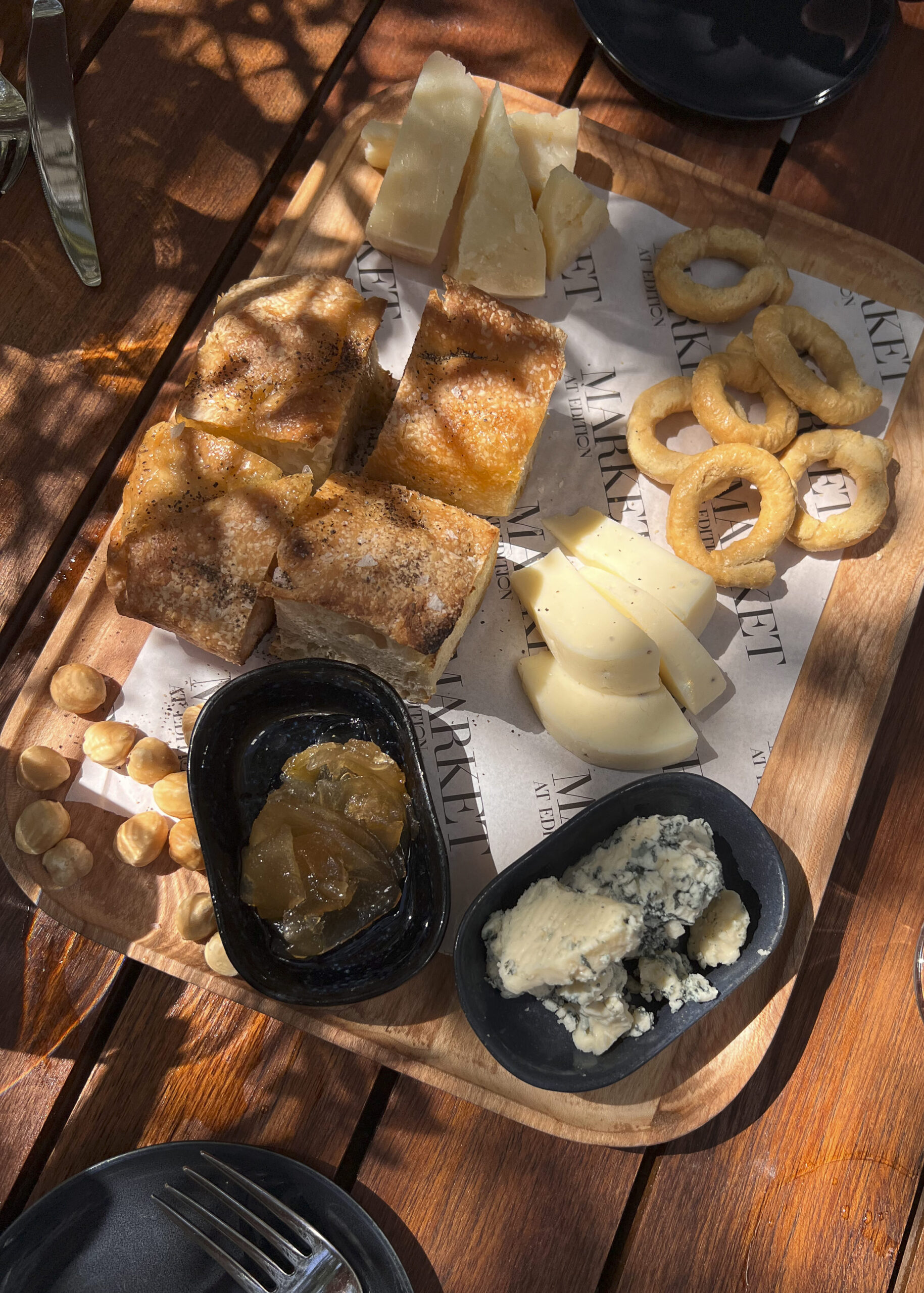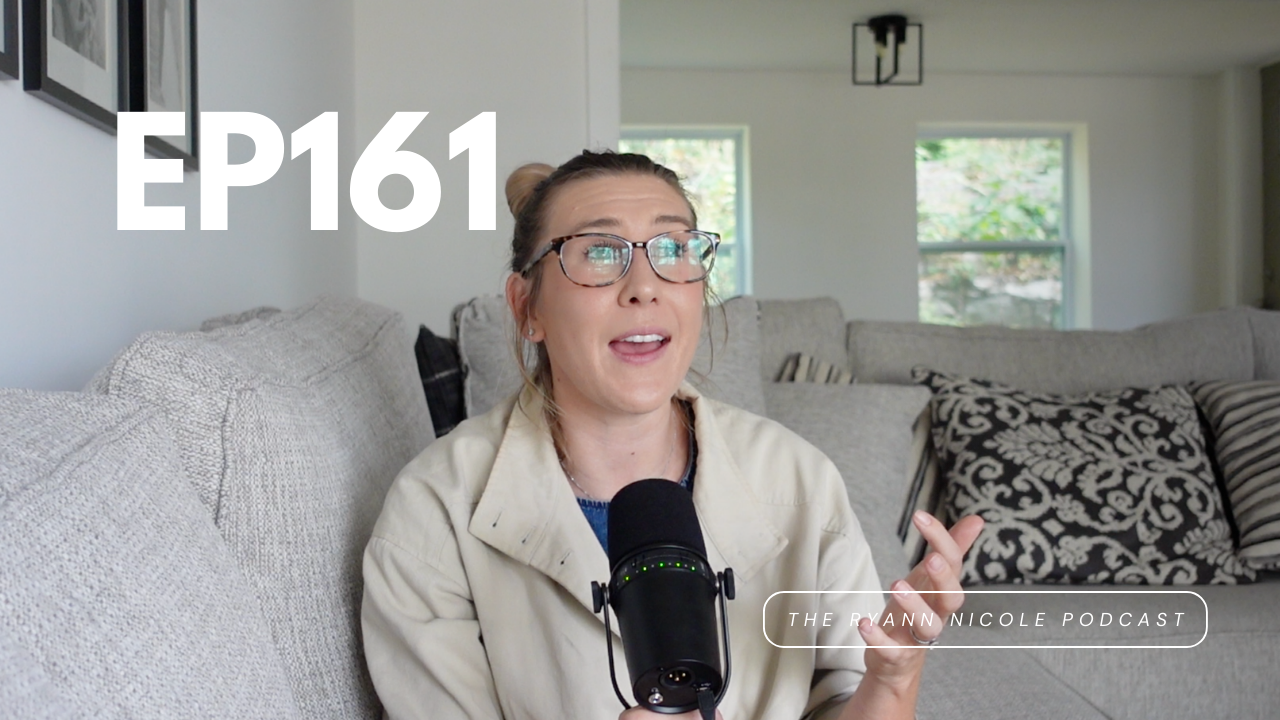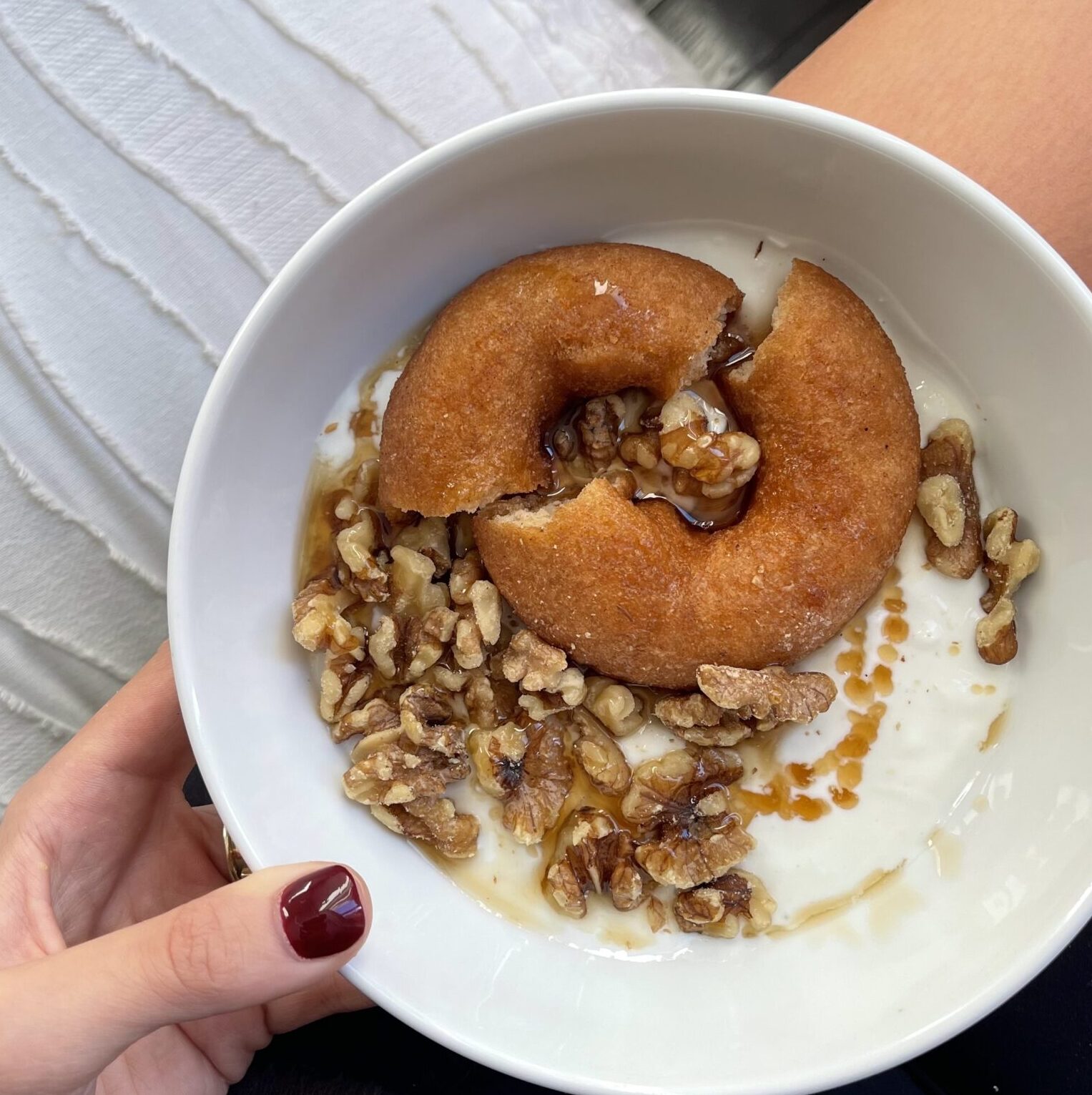Why Intuitive Eating Isn’t Working For You *YET*
September 26, 2024

Hey There, I'm Ryann Nicole.
I’m a recovered binge eater who changed the story from something that happened to me to something that happened for me. Now, I’m a licensed therapist teaching you to do the same.
My mission? To help you ditch food stress and live your life with mental peace and freedom every single day!
Intuitive eating sounds so simple on paper, right? Just listen to your body, eat when you’re hungry, stop when you’re full—easy. But then you try it and it’s like, wait, all I’m doing is eating ice cream for dinner and donuts for breakfast… How is this health? And here you are, frustrated, wondering why intuitive eating makes Sally Sue on Instagram eat kale salads while you’re sitting here with an empty pint of Ben & Jerry’s wondering, Why can’t I get this food thing right?
First off, take a deep breath. You’re not doing it wrong, and you’re definitely not broken. Intuitive eating can feel so hard at first, but that doesn’t mean it’ll never work for you. There’s no one-size-fits-all approach to this, and it’s not about “getting food right” or comparing your journey to someone else’s highlight reel.
Let’s break down why it feels so tough right now—and why that doesn’t mean you’re failing. There are just a few things that might be getting in the way, and once you understand them, it’ll start to click. Trust me.
Unresolved Emotional Issues
If food has been your go-to for stress, comfort, or avoiding feelings (which, let’s be honest, is so common), those emotions don’t just disappear because you’ve decided to listen to your hunger cues. You’ve likely spent years, maybe even decades, using food as a buffer—something to quiet the stress, fill the loneliness, or even to celebrate the highs. When you begin intuitive eating, and suddenly there are no more food rules to cling to, those emotions can roar to the surface, leaving you wondering, Why is this so hard?
Why Intuitive Eating Isn’t Working *Yet*
Research shows that people who struggle with emotional eating often report higher levels of stress, anxiety, and depression, making it difficult to break the cycle.1 It’s not that intuitive eating doesn’t work for you, it’s that you need to heal the emotional patterns and triggers first. Once you start working through the underlying emotional stuff—whether through therapy, journaling, or simply acknowledging what’s been driving your eating patterns—you’ll notice that food becomes less of a tool for coping and more about actual nourishment.
Misinterpretation of Hunger and Fullness Cues
You know how people say, just eat when you’re hungry and stop when you’re full? That’s great advice—if you actually know what hunger and fullness feel like! But if you’ve been struggling with food, it’s highly likely that these cues are a little (or a lot) off. When you’ve spent years eating past fullness or ignoring hunger because of diet rules, it makes sense that your body’s signals would be hard to interpret.
Why Intuitive Eating Isn’t Working *Yet*
Re-learning these signals takes time. You’re not broken, you just need to reconnect with your body before you can truly listen to it. Your hunger and fullness cues are there, but years of ignoring or overriding them has left you unsure of what they feel like. It’s not that intuitive eating doesn’t work for you, it’s that you need time and practice to reestablish that trust with your body so you can confidently respond to its cues.
Nutrient Knowledge Gaps
One of the biggest misconceptions about intuitive eating is that it’s all about eating whatever you want, whenever you want. While that can sound like fun, intuitive eating isn’t a free-for-all—it’s about learning to trust your body and nourish it properly. As Evelyn Tribole and Elyse Resch put it, intuitive eating is about making choices that honor both your health and your taste buds2.
Why Intuitive Eating Isn’t Working *Yet*
A lack of nutrient knowledge can lead to chaotic eating that leaves you feeling unsatisfied or low-energy. Understanding what foods fuel your body versus what foods are just for pleasure is an essential part of the process. It’s not that intuitive eating doesn’t work for you, it’s that you may need to fill in some gaps in nutrition knowledge so you can better support your body’s needs while still enjoying the foods you love.
Medical or Hormonal Factors
It’s so important to acknowledge that sometimes the issue isn’t emotional or mindset-based but more… body-based. Things like thyroid issues, PCOS, or even blood sugar imbalances can throw off your hunger and fullness cues, making intuitive eating feel like you’re fighting against your own biology. When hormones are out of balance, the body can send mixed signals that make it difficult to know when you’re hungry or full.
Why Intuitive Eating Isn’t Working *Yet*
If you’ve been doing all the things and still feel off, it’s worth checking in with a doctor or dietitian to see if any medical or hormonal issues are at play. It’s not that intuitive eating doesn’t work for you, it’s that underlying health conditions could be messing with the signals your body is trying to send you, making it hard to follow through.
Societal and Environmental Influences
Let’s be real—our world is not set up to support intuitive eating. Diet culture screams at you from every direction, whether it’s co-workers commenting on your lunch, Instagram influencers pushing detox teas, or even your own family asking why you’re not “watching what you eat.” The constant noise from society can make it nearly impossible to hear your own body’s signals.
Why Intuitive Eating Isn’t Working *Yet*
Studies show that around 45 million Americans are on a diet at any given time , which tells you how deeply ingrained this mentality is. It’s not that intuitive eating doesn’t work for you, it’s that you’re still half in, half out—trying to follow your body’s cues while diet culture keeps pulling you back in. Letting go of those external pressures is key to fully embracing intuitive eating.
Rigid Interpretation of Intuitive Eating
Lastly, I’ve seen soooo many people turn intuitive eating into just another set of rules. It becomes the “don’t eat past fullness” diet or the “listen to your hunger, but don’t emotionally eat” diet, which completely defeats the purpose. Intuitive eating is supposed to be flexible, but sometimes we turn it into yet another restrictive framework.
Why Intuitive Eating Isn’t Working *Yet*
As Tribole and Resch explain, categorizing food as “good” or “bad” is diet mentality sneaking back in . Intuitive eating is about learning, being curious, and not striving for perfection. If you’re finding that you’re being super strict about “doing it right,” maybe loosen the reins a bit. It’s not that intuitive eating doesn’t work for you, it’s that you’re turning it into a rigid set of rules instead of letting it be the flexible, compassionate practice it’s meant to be.
So…Why Isn’t It Working Yet? The key word here is yet. Just because you’re struggling with intuitive eating right now doesn’t mean you won’t eventually get it. You’re unlearning years—maybe even decades—of diet culture, emotional eating, and rigid food rules. And let’s be real, that takes time. This isn’t about getting it perfect from day one; it’s about getting curious, trying, messing up, learning, and trying again. The fact that you’re here reading this means you’re already on the right path.
Trust that as you continue healing and learning, things will start to click. The signals will get clearer, the noise will fade, and you’ll feel more connected to your body. It’s not about rushing the process—it’s about trusting that, eventually, intuitive eating will work for you. It just takes time and patience.
check out the pod
Ways I Can Support You
01 Coaching
Intimate group coaching to break free from binge eating
02 podcast
Real talk on food, mindset shifts, motherhood, and finding peace.
03 support group
A safe space to connect with others on the same journey.
04 free coaching
Have real conversations and hear others share their struggles.
Ryann Nicole
Licensed Therapist, Certified Nutritionist, and Virtual Wellness Coach
Ryann is a licensed therapist and virtual wellness coach who has assisted individuals worldwide in establishing a healthier relationship with food and their bodies.
Are You Ready to Heal Your Relationship With Food?
I understand—it can be overwhelming to figure out where to begin. Let's simplify things and have you start right here:
Why Am I Overeating?
First Steps To Stop Binge Eating
The Ryann Nicole
Podcast
FREE QUIZ
FREE GUIDE
Podcast
the food freedom lab podcast



